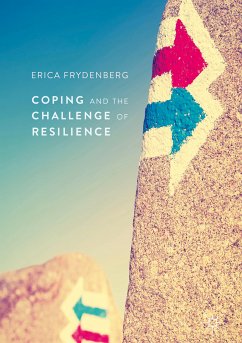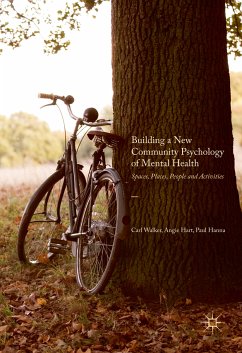
Coping and the Challenge of Resilience (eBook, PDF)
Versandkostenfrei!
Sofort per Download lieferbar
88,95 €
inkl. MwSt.
Weitere Ausgaben:

PAYBACK Punkte
44 °P sammeln!
This book addresses how best to meet everyday challenges. The author focuses on how to think and act differently about what we do as we face challenges, and how to assess each situation as one of challenge rather than threat or harm because we have the strategies to cope. Spanning eleven chapters, the book examines the best ways to provide the core skills for life, to children, adolescents and adults, and how that is best achieved through the contemporary theories of coping. Coping has traditionally been defined in terms of reaction; that is, how people respond after or during a stressful even...
This book addresses how best to meet everyday challenges. The author focuses on how to think and act differently about what we do as we face challenges, and how to assess each situation as one of challenge rather than threat or harm because we have the strategies to cope. Spanning eleven chapters, the book examines the best ways to provide the core skills for life, to children, adolescents and adults, and how that is best achieved through the contemporary theories of coping. Coping has traditionally been defined in terms of reaction; that is, how people respond after or during a stressful event. More recently, coping is being defined more broadly to include anticipatory, preventive and proactive coping. This book provides case studies of resilient adults in a range of settings, highlighting how coping resources have helped them to overcome adversity.
Researchers, students of psychology and social work, practitioners and those interested in the self-help field will find this book invaluable.
Dieser Download kann aus rechtlichen Gründen nur mit Rechnungsadresse in A, B, BG, CY, CZ, D, DK, EW, E, FIN, F, GR, HR, H, IRL, I, LT, L, LR, M, NL, PL, P, R, S, SLO, SK ausgeliefert werden.












